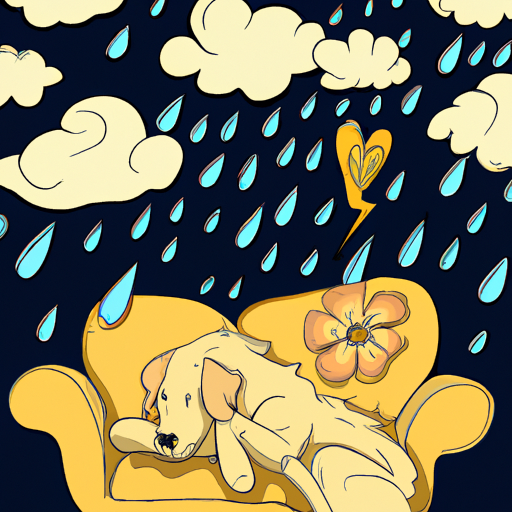Depression is a prevalent mental health issue worldwide, affecting millions of people. Among the various therapeutic strategies to combat depression, one non-pharmaceutical method that’s gaining traction is pet therapy, specifically involving dogs. You might be wondering, “how do dogs help with depression?” This comprehensive guide aims to answer that question, providing in-depth insights into how dogs can positively impact mental health.
- Table of Contents
- Understanding Depression
- The Human-Canine Bond
- Dogs and Depression: The Science Behind It
- How Dogs Help With Depression: Real-Life Stories
- Choosing the Right Dog for Therapy
-
Frequently Asked Questions
-
Key Takeaways
- Dogs can provide companionship, unconditional love, and a sense of responsibility, all of which are beneficial for individuals with depression.
- Scientific studies have shown that interaction with dogs can increase levels of the hormone oxytocin, which promotes feelings of happiness and relaxation.
- Choosing the right breed and temperament is crucial for a therapy dog’s effectiveness.
Understanding Depression
Depression is a complex mental health disorder, often characterized by persistent feelings of sadness, loss of interest in activities, and difficulty functioning in daily life. It’s not just feeling down; it’s a serious condition that can take a heavy toll on one’s mental and physical health. The National Institute of Mental Health provides an extensive resource on understanding and managing this disorder.
The Human-Canine Bond
Humans and dogs have shared a unique bond for thousands of years. Dogs are often referred to as a man’s best friend due to their loyalty, companionship, and ability to understand human emotions. This bond can be particularly beneficial for those dealing with depression. When you’re feeling down, a wagging tail or a wet nose against your hand can provide comfort and a feeling of being loved unconditionally.
Here at One Top Dog, we’ve written extensively about the human-dog bond, exploring the benefits of having a dog and how they make great companions.
Dogs and Depression: The Science Behind It
Studies have shown that spending time with dogs can increase levels of oxytocin, the hormone responsible for feelings of happiness and relaxation. This biochemical reaction can provide immediate relief for those experiencing symptoms of depression. Furthermore, the physical activity associated with dog ownership, such as walking or playing, can also boost endorphin levels, which are known as “feel-good” hormones.
Here are some key findings:
– Interacting with dogs can increase oxytocin levels by up to 300%.
– Dog owners are more likely to engage in regular physical activity.
– Owning a dog can reduce feelings of loneliness and isolation.
How Dogs Help With Depression: Real-Life Stories
Real-life stories from those who have experienced depression often highlight the significant role dogs can play in recovery. For instance, Sarah, a 28-year-old woman from Boston, shared how her Golden Retriever, Max, helped her through some of her darkest times. Max’s companionship, affection, and unconditional love were instrumental in her healing process.
To read more about how dogs help with mental health, check out our article on dogs and their impact on mental health.
Choosing the Right Dog for Therapy
Not all dogs are suitable for therapy roles. The ideal therapy dog should be calm, patient, and comfortable in various situations. It’s also important to remember that owning a dog requires time, commitment, and resources. Before adopting a dog for therapeutic purposes, consider factors like breed, size, temperament, and care needs.
Here are some of the best breeds for therapy:
1. Labrador Retriever
2. Golden Retriever
3. Cavalier King Charles Spaniel
4. Poodle
5. Beagle
Frequently Asked Questions
-
Do dogs know when their owners are depressed?
While dogs may not understand the concept of depression, they are highly attuned to their owners’ emotions and behavior changes. -
Can any dog be a therapy dog?
While any breed can be a therapy dog, certain breeds are better suited due to their temperament and characteristics. -
How do I get my dog certified as a therapy dog?
Requirements vary by location, but generally, your dog will need to pass a series of tests demonstrating obedience and temperament.
In conclusion, dogs can indeed help with depression. Their companionship, unconditional love, and ability to stimulate biochemical reactions promoting happiness make them more than just pets; they’re a source of comfort and healing for many.



